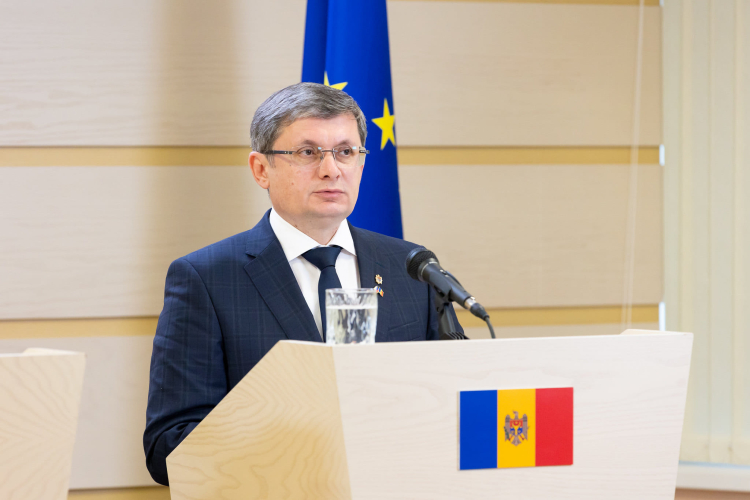Speaker Igor Grosu says propaganda and disinformation are elements of hybrid warfare, claiming that some media organizations in Moldova do the handiwork of the Russian secret services by justifying Russia’s aggression in Ukraine and fomenting trouble in our country.
His remarks are in response to the Commission for Emergency Situations’s last night’s decision to temporarily suspend the licenses of six TV channels.
“Apart from the conventional, bloody war that the Russian Federation is waging in Ukraine, apart from the energy war, there is another war going on. It is called propaganda. We have TV channels that brainwash people day and night, distribute lies, justify the war, incite hatred and confrontation. They also justify stealing, because these channels ended up either in the hands of secret services or in the hands of thieves. And unfortunately, those services work together with those thieves, and then the duty of this institution is to intervene promptly when a channel deliberately propagates lies, and calls for public disobedience and destabilization”, Igor Grosu declared during a talk show on M1.
The speaker says that the Broadcasting Council in its current makeup manages to “bring order” to the Moldovan media landscape, by acting promptly and applying stinging fines when the law is violated.
“I see quite some character in the job done by the Broadcasting Council, and this is what annoys some people. How did it act before? The Council pretended to point the finger, and imposed a symbolic fine, and that was it. The Broadcasting Council is an agency that must continue to oversee the correctness and integrity of our infospace”, Igor Grosu declared.
On Friday evening, the Commission for Emergency Situations suspended the licenses of Primul in Moldova, RTR Moldova, Accent TV, NTV Moldova, TV6, and Orhei TV, for the duration of the current state of emergency. It was done “to protect the national information space and prevent risks of disinformation, spreading of fakes and attempts to manipulate public opinion”. The Commission further stated that the decision took into consideration the international sanctions imposed on certain individuals and entities. The decision, the Commission added, was based on the findings of the Broadcasting Council, which said that the sanctioned channels covered domestic developments and Russia’s war in Ukraine in a biased manner.
- Nicu Popescu resigns from his position as deputy to become European affairs envoy
- Doina Gherman: The European agenda will be the legislature’s priority in the coming months
- Today, the Munteanu Government is requesting a vote of confidence in Parliament
- The designated Prime Minister, in consultations with parliamentary factions
- Hundreds of Moldovans have been left without their Romanian identity cards due to fictitious residence


